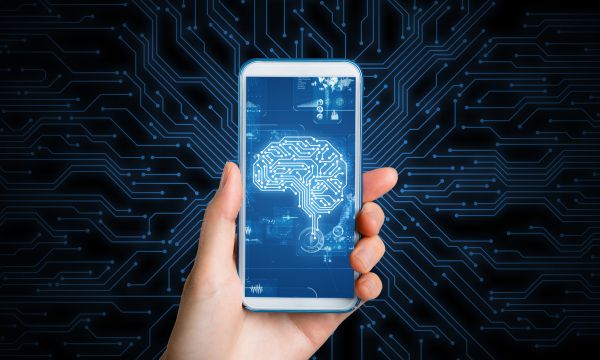8 AI Health Breakthroughs That Improved Patient Outcomes!
Artificial intelligence (AI) has become a game changer in the rapidly changing world of healthcare technology. It revolutionized the way patients are cared for and managed.
Ad
The application of artificial intelligence in healthcare has led to many important advances, resulting in significant improvements in patient outcomes in many areas.
This article discusses eight breakthroughs in AI healthcare that are improving care and improving patient outcomes.
1. AI improves diagnostic accuracy
One of the most important developments is the use of artificial intelligence to make the diagnosis more accurate. Based on enormous amounts of medical images and patient records, AI algorithms can detect diseases such as cancer, heart disease, and neurological problems, often with greater accuracy than humans can.
These high-tech diagnostic tools help detect and treat problems early, significantly improving patients’ survival rates and quality of life.
2. Customized treatment plan
Artificial intelligence has already made great strides in developing more specific treatment plans for each patient. Artificial intelligence systems can look at each patient’s genes, lifestyle, and environment to figure out which treatments are best for them.
This personalized approach leads to better treatment results, higher patient satisfaction, and lower healthcare costs, especially in oncology.
3. Surgical and assistive robots
With the help of artificial intelligence, robotic surgery has changed the way surgery is performed, making it more accurate and less invasive. Artificial intelligence algorithms help surgeons in real-time by providing them with important information and ideas during surgery.
This not only reduces the chance of problems but also accelerates the healing process, making the situation better for the patient.
4. Health assistants who work online
Virtual health assistants, powered by artificial intelligence, can be extremely helpful in managing long-term conditions and ensuring patients receive ongoing care. These assistants can monitor patients’ vital signs, tell them to take their medications, and even spot early signs of potential health problems.
Virtual health assistants help patients gain more control over their health by providing personalized support and interventions. This will lead to better results.
5. How predictive analytics can help healthcare
Artificial intelligence is used in predictive analytics to guess what is likely to happen before health occurs. AI models can find people likely to suffer from certain diseases by looking for trends in old patient data. This allows attention to be paid to problems before they arise.
This proactive approach can be extremely helpful in preventing complications, reducing readmissions, and saving lives.
6. Application of AI in the field of mental health care
The application of artificial intelligence in mental health has revolutionized the way people are diagnosed and treated. People suffering from anxiety, depression, and other mental health issues can get immediate help from AI-powered chatbots and virtual therapists.
AI tools can also look at patterns in speech and writing to detect early signs of mental health problems. This allows help and action to take place quickly.
7. Better drug development
Artificial intelligence makes the process of finding new drugs faster because it can sift through large amounts of data to find potential drug options faster than traditional methods.
This not only brings new medicines onto the market more quickly but also makes the production process cheaper. This means patients have faster access to new treatments, improving outcomes for many diseases.
8. Remotely monitoring patients
Using artificial intelligence, and remote patient monitoring systems, doctors can monitor patients when they are not in a standard hospital environment. These tools can monitor changes in a patient’s condition in real-time so that immediate help can be provided when needed.
This level of monitoring can be especially helpful for people with long-term conditions, reducing emergency room visits and hospital admissions.

Innovations in AI in Healthcare (Source – Google)
Artificial intelligence (AI) is transforming the healthcare sector by improving diagnostic accuracy. AI tools analyze large volumes of medical data to identify diseases more effectively. This results in faster and more accurate diagnoses, benefiting patients.
The personalization of treatments is another area where AI is making a difference. By considering factors such as genetics and lifestyle, AI helps create tailored treatment plans. This increases the effectiveness of treatments and patient satisfaction.
Surgical robots equipped with AI are revolutionizing medical procedures. They enable more precise and less invasive surgeries, reducing complications. This accelerates patient recovery, improving post-operative outcomes.
Predictive analysis is a promising application of AI in healthcare. It forecasts disease risks before they manifest, allowing for early interventions. This not only saves lives but also reduces long-term healthcare costs.
Conclusion
When artificial intelligence was introduced into healthcare, it brought tremendous advancements, improving patient outcomes in many areas of care. Artificial intelligence has a huge and far-reaching impact on healthcare.
It can improve diagnostic accuracy and make treatment plans more personalized. As technology continues to evolve, we can expect AI to be used in more creative ways to improve patient care and outcomes. Artificial intelligence has broad prospects in healthcare.
In the future, technology and medicine will work together to provide the best care to patients around the world.
FAQs
1. How can AI make diagnosis easier?
Artificial intelligence makes diagnosis more accurate by using trained algorithms to detect diseases and conditions in medical images and data with high accuracy.
These algorithms can often find problems that people might miss.
2. Why is robotic surgery a good idea?
Robotic surgery has many benefits, such as greater precision, less invasiveness, shorter recovery time, and fewer complications, all of which can improve a patient’s overall health.
3. Can artificial intelligence determine when health problems arise?
Yes, AI can predict potential health problems in advance by using predictive analytics to look at old patient data and find trends or risk factors associated with certain conditions.
4. How can artificial intelligence help mental health care?
Artificial intelligence is helping mental health treatment by providing more help through chatbots and virtual therapists, observing speech and writing patterns to detect early signs of mental health problems, and connecting people with immediate help.
5. What role does artificial intelligence play in finding new medicines?
Artificial intelligence is important in drug discovery because it looks at large data sets to find potential drug candidates.
This speeds up research and reduces costs, accelerating the development of new treatments.
Leave a comment telling us if you use any of these apps and how important this is in your life.
 Emotional Health and AI: New Tools for Self-Care
Emotional Health and AI: New Tools for Self-Care
Emotional health and AI are increasingly connected, opening up new possibilities in emotional care. Ad In recent […]
More AI in Elderly Care: Technology Meets Compassion
AI in Elderly Care: Technology Meets Compassion
Integrating artificial intelligence (AI) with elder care is not only a sign of technological progress but also […]
More 5 AI Health Startups That Are Changing the Game in 2025!
5 AI Health Startups That Are Changing the Game in 2025!
Artificial Intelligence (AI) is a shining example of the rapid changes in healthcare. It brings major changes […]
More